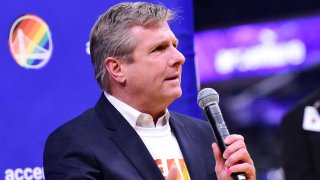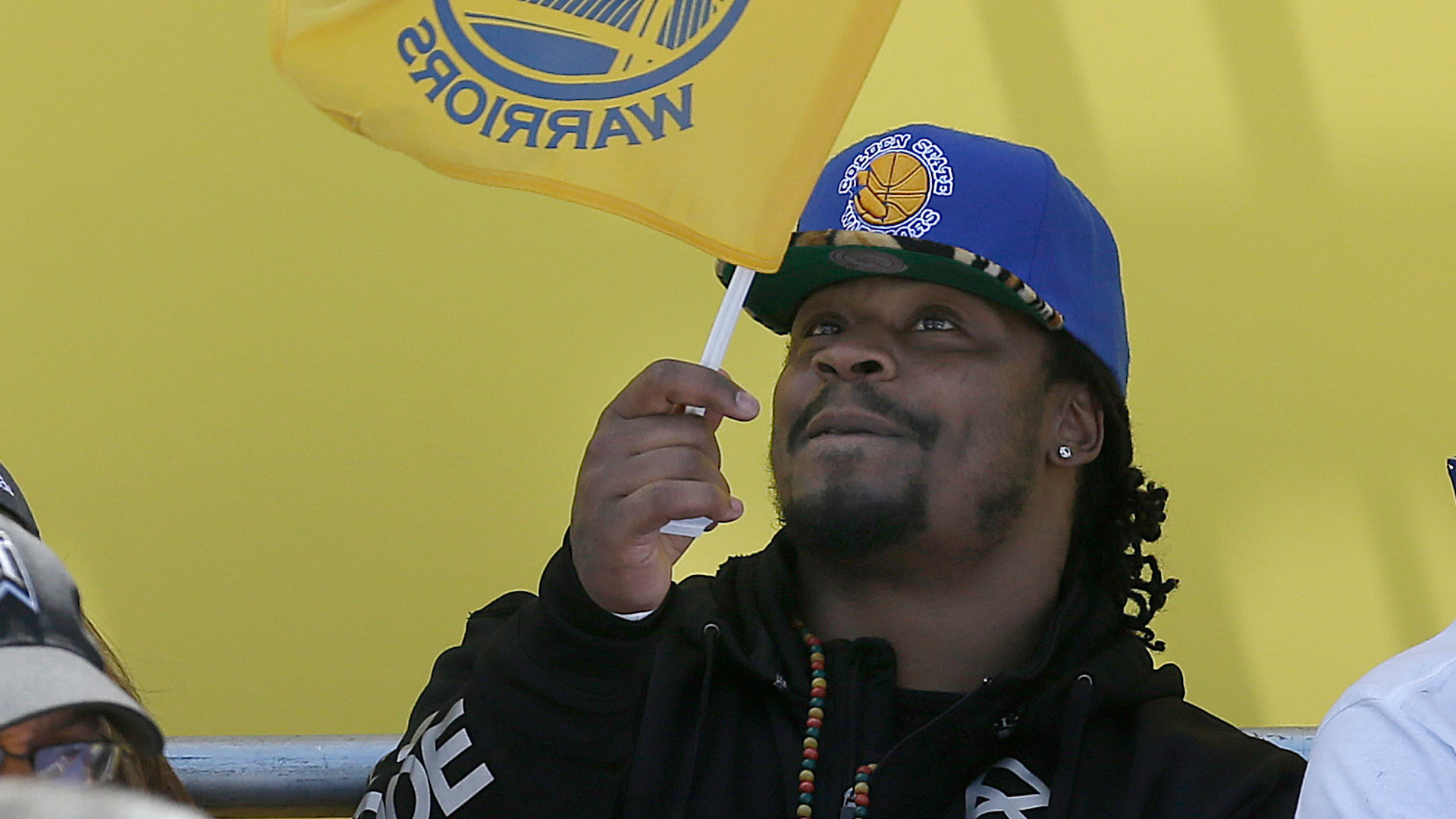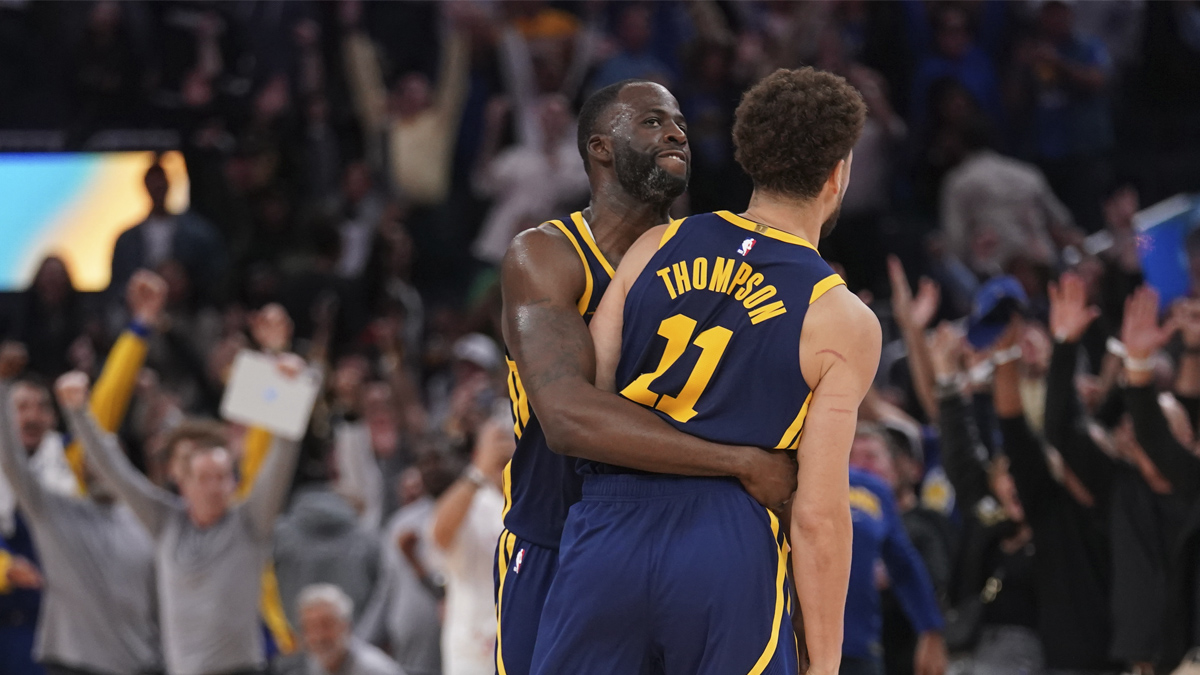
Those who bounce balls beneath scoreboards and normally in front of thousands are getting downright stubborn, providing no indication they plan to back away from issues that the “Stick to Sports” cults insist they forever neglect.
“I’ve scratched my head with the ‘stick to sports’ crowd,” Warriors president and COO Rick Welts says. “It’s never been true. Sports has always been the place where the important conversations were made.
“Because of the way our society is constructed, sports will be a place of conversation.”
Stay in the game with the latest updates on your beloved Bay Area and California sports teams! Sign up here for our All Access Daily newsletter.
A panelist on “Race in America: A Candid Conversation,” televised Friday night on NBC Sports Bay Area and NBC Sports California, Welts concedes he is experiencing a personal awakening regarding racism. Moreover, he and the Warriors are committing to seeking solutions.
The franchise announced on Thursday its plan to promote racial and social equity through the Warriors Community Foundation. Phase One consists of a $200,000 grant divided equally by the Kingmakers of Oakland and the Urban Ed Academy of San Francisco, two organizations that train and recruit black teachers.
Half of the money is coming directly from the wallet of Warriors coach Steve Kerr, a known “social justice warrior,” and a strong advocate for common-sense gun laws.
“The way Steve has used his voice,” Welts says, “has inspired everyone in our organization and millions of others at the same time.”
Golden State Warriors
The concept of the program is built on four pillars: Voice, Feet, Heart and Wallet, with the Warriors dedicated to contributing in all four areas. The idea is to amplify progressive voices to their 45 million social media followers; improve supplier diversity among the companies with which whey conduct business, to the degree that half of their associates are minority-owned companies; and make emotional as well as financial commitments.
This program is in addition to that which was announced by the NBA this month, a $300 million financial commitment over the next 10 years -- with each team responsible for $10 million during that span -- to fund greater economic clout for Black communities.
Among America’s traditional big four sports -- baseball, basketball, football and hockey -- the NBA has the most impressive record of enacting progressive policies and encouraging its players and coaches utilize free expression on matters beyond sports. It is part of the league’s personality.
So, it should not surprise anyone that the NBA and its teams so quickly climbed aboard the global movement for justice and equality that came in the wake of the sickening video-recording of George Floyd’s death under the knee of a Minneapolis police officer on May 25.
“Just seeing the reaction of the world quite frankly -- not only just in our country but the world ... this is different,” Warriors assistant coach Jarron Collins, also a panelist on “Race in America” says. “That incident lit a fuse that it was going to be different and that hopefully coming out of this real change can take place.”
Among the professional sports teams to issue statements that week were the Warriors, who said: “We condemn, in no uncertain terms, racism and violence perpetrated against members of the Black community, and we call on all people to channel their justifiable anger into creating a more just and equitable society.”
Players were allowed to post messages on the back of their jerseys, advocating “Education Reform” or “Black Lives Matter” or “Liberation” and “Vote,” among others.
"They're really positive things that come out of all this activism,” Collins says, “And we should all really be activists in our lives to effect change. When you see something wrong say something. Do something.”
RELATED: Kerr views Steph as 'pioneer' for Lillard, other NBA players
Indeed, the pursuit of liberty for all seems a natural extension of sports. Locker rooms and clubhouses are, after all, among the few places where it’s typical for men or women of dramatically different racial, ethnic and socioeconomic backgrounds, from different parts of the world, gather under a single banner for a common cause.
Coaches, teammates and executives don’t have to think alike, but the environment should be conducive to dialogue that illuminates beyond the scoreboard.
The real question is whether the energy generated over the past 12 weeks can be sustained.
“This is just the beginning,” Welts vows. “If this (is the extent), then we’ve missed the train. This is about the very beginning of this. What you need to do is invite Jarron and me back a year from now and ask what we’ve done and what we’ll do next year. That’s how we should be measured. That’s how we should be judged. Not that we had a program and announced that and moved on.
"We made the commitment that this is a forever thing for this organization.”


